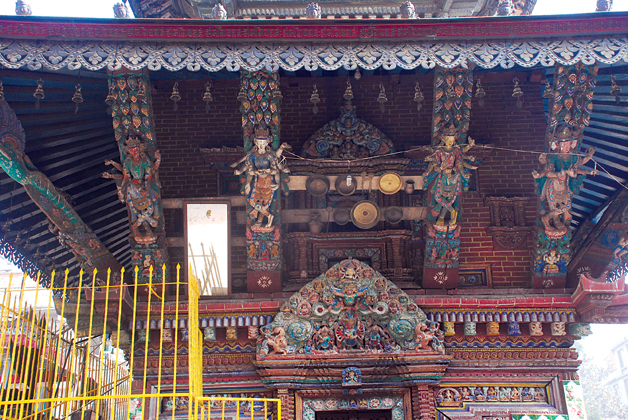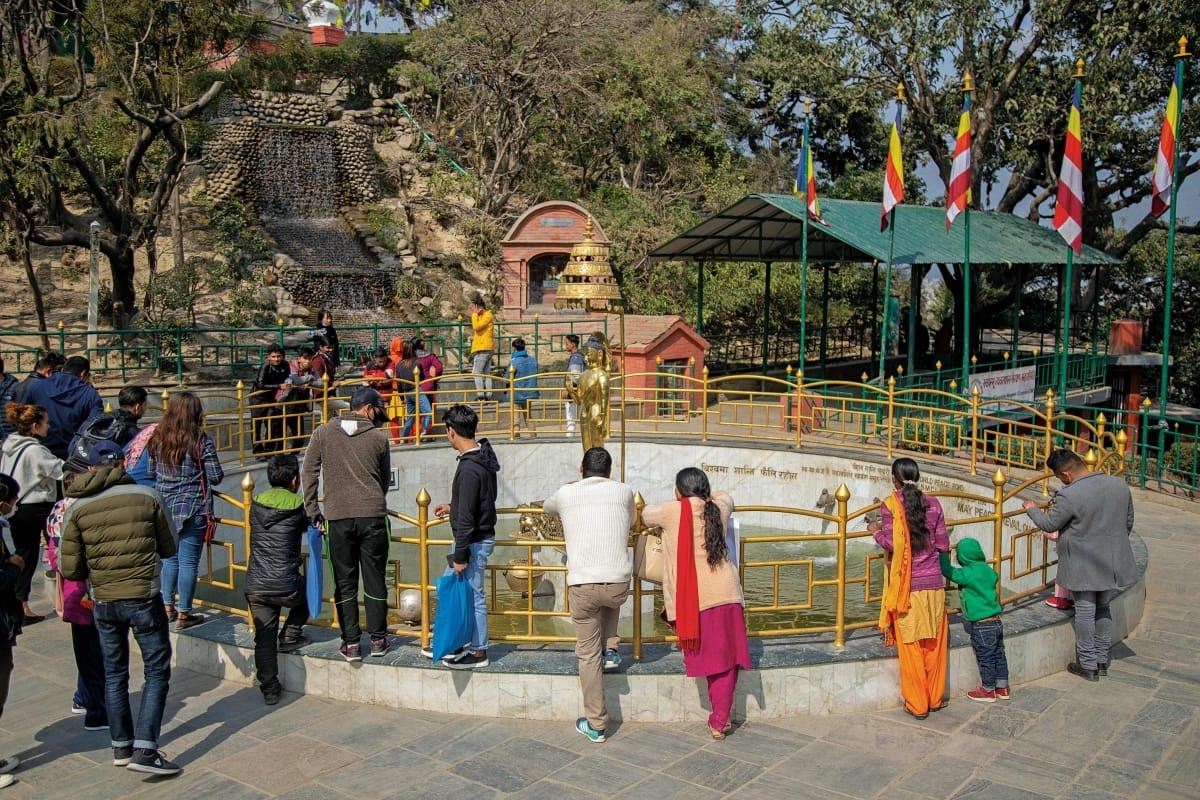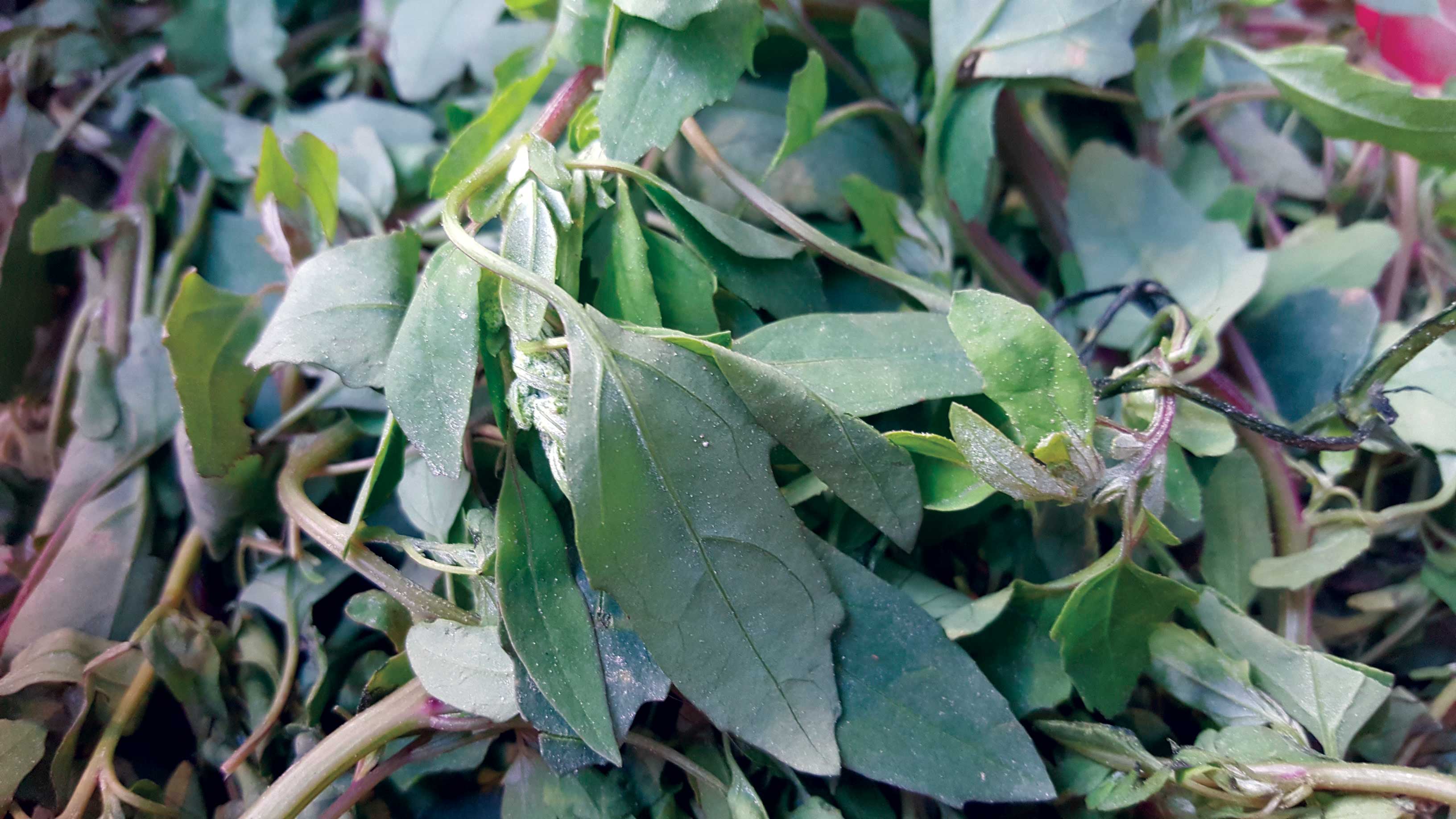
The Deception Point
The temple complex in Bhagwan Bahal, just a stones throw away from the bustling hubbub of Thamel, ‘looks’ like any normal temple populating Kathmandu. It is surrounded by a bustling Bahal and is manacled on all sides by steel grates. “It’s for safety purposes,” a regular devotee confided. “It’s better to be safe than sorry.” The entrance to the temple complex is small; you bow your head in order to enter, squeeze yourself in, if you are rich around the bellies and carrying a large backpack and other assorted stuffs about your person.
Once you are inside the temple, take your time to look around. See if the steel grates are enough to keep the gods in and the thieves out. Don’t think aloud, though for these are turbulent times. Gods have been ‘kidnapped’ from their once secure palaces, whisked away from their abodes on the whim of some fanciful ‘art’ collectors who has taken a strong penchant to turn our gods into their showpieces. But that’s another story for another day. We are more concerned about a certain strange oddity in the temple’s main façade.
Usher yourself into the main courtyard and look around. Allow yourself the luxury of letting the place seep into you. Savor the calmness, something that has been listed on the top of the endangered list for quite some time now. While you are at it, drink the tranquility that flows in abundance there and enjoy the bliss of the moment as silence rushes to your being. It’s surprising that even though the temple is just a stone throw away from the noise capital, Thamel, silence reigns supreme. Now, raise your eyes, as if in silent prayer and gratitude, to the heavens. No, no, not that higher! Just about enough to ensure that you have the gajur (the topmost decoration piece of a temple) in plain view. Aren’t you amazed yet? By any chance, are you able to comprehend what you are seeing? Are you coming in terms to that?
The invasion of the utensils
Pots and pans; pans and pots. Ladles and spoon; spoons and ladles. And, the entire cooking utensil is sewn, nailed down to every available space. Not even a single inch of space is forgiven. Every inch, nook and cranny is ruled by some sort of cooking utensil: it looks like the picnic, some sort of reunion and family gathering of cooking utensils. By the looks of it, the utensils have brought their in-laws, too.
Flabbergasted? Are you now? Let me assure you that you are not the only one. Allow me to add some sense to the entire thing. With your permission then.
Ensuring afterlife
Have you ever seen a pious devotee walk into a temple with empty hands? The answer is pretty obvious: No. Even if it’s a simple garland sewn from flowers plucked from their own garden or the cheap ones they sell in the roadside stalls, devotees make sure that they are not entering the house of their god empty handed. It’s basic human nature, you see. Humankind has been offering gifts as tokens of their appreciation and whatnot to their chosen deity, to whomever they chose to invest their faith in, for as long as memory allows. And the gods, in return, have blessed them, and that, too, bountifully. While the gullible of the devotees asked for immortality, not fully understanding the consequences involved in aging but not dying, the cleverest ones asked the gods for something else. They asked the gods to ensure their afterlife.
People in this part of the world believe that the life-spark of every living organism, the soul, is immortal. Like we change our dirty cloth, the soul changes life-forms and hence life continues. It’s the crux of almost every Hindu scripture. Now, if you put it like that, you wouldn’t blame the old folks in their attempts to ensure their afterlife. The utensils you see hanging in the temple are there just to do that: to ensure their afterlife so that when the departed souls re-enter the human realm they have no trouble of starting from scratch, as it were. “The utensils are the representation,” shared another devotee, “of all the earthly things and not just about having a good lunch once you are reincarnated. When the family of the deceased offers the utensils to the gods, it’s as much of a prayer as a silent wish. A wish to see that their loved ones are safe and secure, regardless of the life-form they’ve been incarnated into.”

Massage Away your Stress
A Five Thousand-Year-old Ayurvedic massage helps you de-stress from your hectic life. Life brings in a lot...







